Supporting Your Neurodivergent Kid in Sports ND kids can benefit immensely from, and even enjoy and excel at, sports 35/ City Lit
Iconic children’s books to inspire a family’s trip to the Big Apple
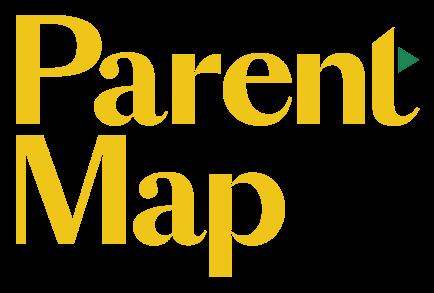
Sports for all, Halloween fun, a bite of the Big Apple and more

8/
OCTOBER 2022 | PARENTMAP.COM Fantastic Fall
SEATTLE CHILDREN’S Good Growing Newsletter P. 19 PNW INSIDE + OUT
Fun in your inbox

Stay up to date with the latest family news, stories and adventures around Puget Sound — straight to your inbox.
ParentMap.com/eNews













We Deliver

For a limited time, subscribe to an entire year of ParentMap magazine for just $12.
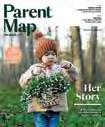
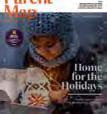
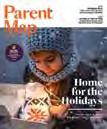

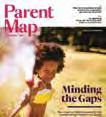

We are a family dentistry practice that provides preventive, restorative, cosmetic and orthodontic services, including dental implants. Our patients range in age from as young as 1 to as old as 98 years old! Breeze Dental 919 124th Ave. NE #201, Bellevue, WA 98005 • (425) 454-1622 breezedentalbellevue.com email: breezedentalbellevue@gmail.com 0922_breeze_dental_no special_3-4.indd 1 7/29/22 1:04 PM
Sign up for home delivery –12 issues for $12
ParentMap.com/subscribe 2 / PARENTMAP.COM
October 2022
In Every Issue
Dear Reader 4 Play List 28
Parenting
IT STARTS WITH YOU(TH) Discovery Center Fall Programming Preview 6 Engaging programs inspire students to learn about complex issues
HALLOWEEN
Hauntingly Fun Ideas for Your Halloween Celebration 13 Make this Halloween one that will really lift their spirits

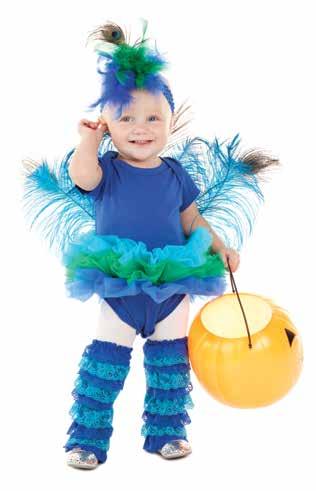
PARENT VOICES
9 Things Breast Cancer Taught Me About Raising Teens 15 One mindful mom’s journey and discovery of what truly matters
Every Child
Supporting Your Neurodivergent Kid in Sports 8
ND kids can benefit immensely from, and even enjoy and excel at, sports

Financial Planning Strategies for Children With Special Needs 24

Expert tips to plan, save and protect assets
Local Resources Camps + Activities 12
Halloween + Harvest 13 Schools + Preschools 23
Family Fun
OUT + ABOUT October Play List 28

A cornucopia of ways to have a ball this fall
City Lit 35
Iconic children’s books to inspire a family’s trip to the Big Apple



SEATTLE CHILDREN’S Good Growing Newsletter 19


From “Eloise” to “Corduroy,” in New York City, you can step right into the setting of your favorite childhood story and make the book come alive.

CONTENTS
PARENTMAP.COM
13 828 35 INSIDE: 2022 LEARNING ISSUE + 2022/23 NWAIS SCHOOLS GUIDE How parents can cultivate bilingualism Age-tailored tips for helping your child manage back-to-school anxiety PNW INSIDE OUT The Learning Issue Expert tips and dozens of resources for navigating the school year ahead 2022/2023 Participating NWAIS SCHOOLS Guiding Inspiring Advancing PARENTMAP / OCTOBER 2022 / 3
October, I’m falling for you
How is it already October!?! Wow, those last few weeks of summer flew by.

In an editor’s note written earlier this year, I made a case in five testimonies that March is the best month of the year in the PNW, but I have to say, October is a close second for me. There is something about the steadying, recalibrating pace of October that I find incredibly soothing.
By the time October has rolled around, most families have settled into a manageable fall groove. It helps that many of the month’s signature experiences are all about the cozies and the yummies — because who doesn’t love their puffer jacket, any excuse for a bonfire, Halloween tricks and treats, and apple butter slathered on absolutely everything? And pumpkins! You gotta admit it: Pumpkins have to be the cheeriest monthly mascot of all time, no matter your personal stance on pumpkin-spiced sorcery.
And then there is the almighty alchemist of my household: the crockpot. I love crockpot cookery so much that I have them in three graduated sizes. On almost any October day, you could lean over and ask me, “Hey, Patty, whatcha doin’?” And no matter what I am pres ently occupied with, I can truthfully reply, “I’m cooking dinner, silly!”
October somehow never feels as hurry-scurry as the rest of the year. (Well, unless you’re a squirrel, maybe …) Sure, the year-end months, with their hyperactive holiday stresses and persistent rain, are coming, but we feel alive and oddly recharged by the ginger-hued, temperate glow of a PNW October.
That crisp little nip in the air on a dazzlingly bright October day is an instant mood booster; also, a good prompt to size the kids up for a new pair of rain boots. Because, well, puddles, of course! Walks in nature are exquisite meditative breaks — particularly after it has rained during the day. Sure, rain (or the perpetual threat of it) will become the arch nemesis of too many of our family plans and moods in the weeks to come, but October rain feels like a gentle and purposeful reminder that for everything there is a season and a time for every activity under heaven.
Small daily pleasures intensify in the quieter pockets of October days. Coffee becomes not a necessary fuel to kickstart baseline function but a ritual to be luxuriated over with a dear friend. Or perhaps an occasion to make a new one. We are recalled, during the increasing ly darkening evenings of October, to look up at the night sky, feeling infinitesimal but also a bit player in some totally cosmic master play. We’re each listed deep down in the credits somewhere.
However you spend your October (and I might also suggest that it is a great month to gobble up a surplus of new binge-worthy shows and podcasts — see a few suggestions at right — or plow through that teetering stack of books on your bedside table), we hope it delivers all of the good seasonal feels to your family.
— Patty Lindley, managing editor
What is your favorite podcast of the moment?
OCTOBER 2022, VOL. 19, NO. 10
PUBLISHER
Alayne Sulkin
EDITORIAL
MANAGING EDITOR
Patty Lindley OUT + ABOUT EDITOR Nancy Chaney
DIGITAL CONTENT EDITOR
Vicky McDonald
DIGITAL CONTENT PRODUCTION COORDINATOR Kari Hanson
OUT + ABOUT EDITORIAL ASSISTANT Julie Dodobara
COPY EDITOR
Sunny Parsons
CONTRIBUTORS
Candace Barlow, Nancy Chaney, JiaYing Grygiel, Kari Hanson, Nikki McCoy, Monica Padineant, Susan Zurek
DIGITAL MARKETING
DIGITAL MARKETING MANAGER
Gina Ryan
EMAIL MARKETING SPECIALIST
Devon Hammer
DIGITAL MARKETING COORDINATOR Taryn Weiner
SOCIAL MEDIA SPECIALIST
Emily Feely
ADVERTISING SALES + PARTNERSHIPS
SENIOR ADVERTISING AND PARTNERSHIPS MANAGER
Ida Wicklund
COMMUNITY PARTNERSHIPS AND CLIENT ENGAGEMENT MANAGER
Jessica Collet
ADVERTISING CLIENT SERVICES ASSISTANT
Angela Goodwin

CLIENT SERVICES PRODUCTION COORDINATOR Mallory Dehbod
EVENTS



EVENT OPERATIONS
Brenna McCown
ART + PRODUCTION
SENIOR DESIGNER
Amy Chinn
ADMINISTRATION
BUSINESS MANAGER
Carolyn Brendel
PARENTMAP EDITORIAL ADVISORY BOARD
Benjamin Danielson, M.D.
CLINICAL PROFESSOR, UW SCHOOL OF MEDICINE
PRACTICING PHYSICIAN, UW MEDICINE
Joan Duffell
RETIRED EXECUTIVE DIRECTOR, COMMITTEE FOR CHILDREN
John Gottman, Ph.D.

THE GOTTMAN INSTITUTE
PROFESSOR EMERITUS, UNIVERSITY OF WASHINGTON
Laura Kastner, Ph.D.
PSYCHIATRY + BEHAVIORAL SCIENCES, UNIVERSITY OF WASHINGTON

Bea Kelleigh
VICE PRESIDENT, DOVETAILING, LLC
Yaffa Maritz, M.A.
FOUNDER, LISTENING MOTHERS + COMMUNITY OF MINDFUL PARENTING
Ron Rabin

EXECUTIVE DIRECTOR, KIRLIN CHARITABLE FOUNDATION

Daniel J. Siegel, M.D.
EXECUTIVE DIRECTOR, MINDSIGHT INSTITUTE
CONTACT INFORMATION
Advertising information 206-709-9026 or advertising@parentmap.com Fax 206-709-9031
Calendar submissions calendar@parentmap.com
Editorial submissions

editor@parentmap.com
Distribution distribution@parentmap.com
Administration 206-709-9026, parentmap.com
Subscriptions subscriptions@parentmap.com
Subscription rate
1 year: $12
ParentMap is published monthly. PMB #190, 7683 S.E. 27th St., Mercer Island, WA 98040 All rights reserved;
reproduction in whole or part without permission is prohibited.
© ParentMap 2022 • printed
Oregon
DEAR READER
in
4 / PARENTMAP.COM





















































































































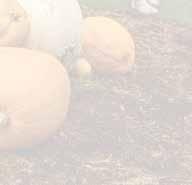



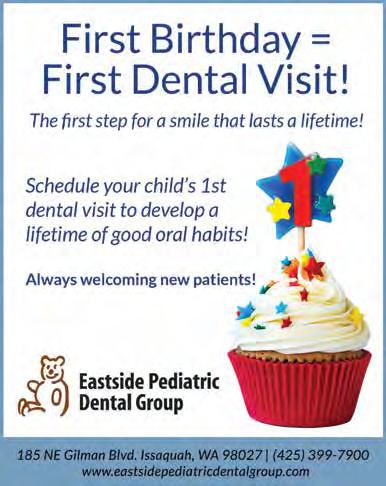
PARENTMAP / OCTOBER 2022 / 5 HOOT ‘N’ HOWLHOOT ‘N’ HOWL night—safely! Trick-or-treat around the park…Listen for nighttime animal noises… Climb like a spider or swoop Discounted tickets: nwtrek.org expxploore e the he for o es e t atCoome l htni nigh g — ely! Trricickk-or o -tre r at tysaafe k…Li L stten en for ond th par a kar a ou o he e r al noiisees…n nig n anim imghttttimme e a s er or o swooop pC mb b dClim li l ke a spi p de r k!l liike e a ba at Ki K ds s Tr Treat t t id ' ek Oc tober 14 15 & 21 22 5 9 pm ek.oorg rD cou o nt n d tic ets: : nwwtrekDiisc ed e cke r . g FALL EVENTS AT THE RESERVE Visit October 1-31 for stunning fall colors paired with home-grown gourds! Fall hours Tuesday–Sunday 10 AM–4 PM Timed tickets are required for admission bloedelreserve.org
It Starts With You(th)
Discovery Center Fall Education Programs
What’s on the docket for fall programming? What are you looking forward to? We are definitely most excited to have school groups back in person! I’m curious to see how students will respond to our programs in the space. This year, we’re really going in on these themes and trying to tailor them for groups based on their specific needs and curriculum in the classroom.
Linda High joined the staff at the Bill & Melinda Gates Foundation Discovery Center (discovergates.org) in April 2020. Hired as a visitor experience coordinator and associate communications officer, her primary role is to connect school groups and Discovery Center visitors with the content and work of the foundation. “You could say it was a really wild time to join a new team,” High jokes, referring to the rather conspicuous timing and subsequent immediate pause that the coronavirus pandemic placed on in-person informal education experiences, precisely the type she had been hired to coordinate.
Arriving at that pivot point, when every organization with a community education space and engagement objective needed to quickly mobilize strategies to convert programming for a new, socially distanced reality, High got to work with the Discovery Center team to create virtual tours and workshops based on the foundation’s work.
Two years later, she reflects on what they have learned, and also shares what’s ahead for the resumption of in-person education programs this fall.
What has the pandemic taught you about building flexibility into your programs? We were able to stay true to our goals in terms of providing people with information about the work of the Bill & Melinda Gates Foundation, taking aspects of its focused work around topics such as agriculture and some of the innovations that the foundation has helped to fund with its partner
organizations, and translating some of those ideas and topics into an engaging virtual workshop format. Those all went great, and it was a really fantastic experience to do that work and to work with groups virtually.
We will have various topics this year. We’re going to keep the design thinking workshop, as that seemed to be really popular virtually. So, we want to try that in person. We had a program on the sustainable development goals work the foundation has been doing with the United Nations, and we’re going to keep that as well. We’re also doing a program on gender equality, based on the newest work of the foundation.
We also have our COVID-19-themed special exhibit, which is focused on the fact that we all have a story and an experience of the pandemic to tell. We’re going to have a tour for that particular exhibit. It is really just an opportunity for us to have reflection time with students about that whole ordeal.
What can we look forward to in 2023?
For this school year, we’re excited to welcome folks back into the space, especially students and school groups, and take some of those topics and adapt them to be engaging and hands-on. But we’ll keep our virtual offerings as well. We were able to work with groups from across the United States and also across the globe [during the past two years of virtual programming]. So, we definitely want to keep that option available. We realized, too, that there may still be some questions about whether or not schools can go on field trips and things like that. So being able to provide the virtual workshops just ensures that we’re creating access for as many students as possible.
After the COVID-19 exhibit goes away, we’re going to install a special exhibit called “Designing Motherhood.” So, that’ll be coming in the new year, and we will design special tours and programming for that.
Do you have any specific message you would want to get out to educators? I just would want educators to know that we’re here and we want to work with you and support you to the best of our abilities, whether that be virtually or in person. We really do try to be very flexible. I would just encourage teachers to reach out to us to see what we can do to support what they are doing in the classroom around these themes.
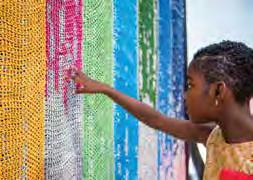
Engaging in-person and virtual school tours offered for students in middle school through college, starting Oct. 4
Global Goals, Local Action. Photo courtesy of Bill & Melinda Gates Foundation Discovery Center
6 / PARENTMAP.COM
The Bill & Melinda Gates Foundation Discovery Center believes young people play an active role in solving today and tomorrow’s toughest challenges — and it’s excited to share resources and present programs that highlight how young changemakers are shaping their local and global communities, now and in the future.
In-person school group workshops
There is a range of 90-minute, topic-based workshops to choose from. Bus subsidies are available.
Topics include:
• Global Goals, Local Action
• Gender Equality: Women’s Empowerment
• Design Thinking
Special Exhibit: “COVID-19: Where Do We Go From Here?”
Virtual classroom experiences
Free virtual tours are available for groups of five or more. Each session runs up to 60 minutes in length.
Topics include:
• How Does the World Feed Itself?
• Fighting Disease Around the World

• What to Do With All That Poo?
• Living in a Climate-Changed World
Explore topics and book a tour at discovergates.org/education-programs ■
— Patty Lindley
Sponsored by
Explore interactive exhibits and find ways you can take action at the Gates Foundation Discovery Center, discovergates.org.
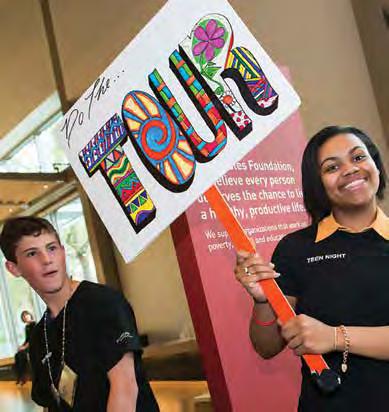
In-Person & Virtual School Group Tours
Explore topics including: Design Thinking Gender Equality Fighting Diseases And more!
Book now for your class or group’s fall visit at Discovergates.org
Always Free
PARENTMAP / OCTOBER 2022 / 7
Supporting Your Neurodivergent Kid in Sports
 By Candace Barlow
By Candace Barlow
FEATURE
How to get out there and have fun
See if this scenario sounds familiar: You are sitting on a blanket spread out at the edge of the field, feeling a knot in your stomach the size of the soccer ball, as you watch your child reluctantly dribble the actual ball across the grass. They have practiced all summer, but controlling the ball is still difficult for them. A group of kids who couldn’t contrast more with your child engage in excited chatter and horseplay at the center of the field. You suspect that once your child reaches them, he will bow his head (because eye contact is uncomfortable) and stand back (due to all of the noise and commotion), making his difference from the rest of the players that much more obvious.
You want to be excited to see your child finally put their hard work into practice, to show your pride about the risk they took to even come out today, but you’re worrying instead that practice might start with a meltdown. You’re thinking about the effort it required to even get there in the first place, how you helped your preteen child — who had been yelling in frustration for at least five minutes before you intervened — pull on impossibly tight soccer socks; tried to convince them that shin guards were, in fact, mandatory; and gave your best pep talk in the car while noticing that you were already late for this, the first day of practice.
The coach will soon see that your family is always running five–10 minutes behind, no matter how much you juggle schedules around. Leaving your house is timeconsuming and unpredictable every time, and anyway, there seems to be no way to explain your unpunctuality without divulging your child’s diagnosis. You look around with some envy at the other parents who are talking amongst themselves or staring at their phones, rather than watching the field like a hawk for the first sign of trouble.
You wonder whether your child should continue this season and whether they will have any fun at all.…

Sports are considered by many parents to be a childhood rite of passage. But neurodivergent (ND) children — those with a neurological difference, such as ASD, ADHD or anxiety — often have difficulty participating in team sports in particular. These kids might experience great distress and difficulty in spite of being physically capable, and can drop out early or even refuse to try a sport at all. As a result, they are missing out on an experience many parents feel is important to developing qualities such as perseverance, teamwork and confidence, not to mention sportspecific skills.
Kids with neurodivergence are constantly confronting challenges on many levels simultaneously. ADHD, for example, can affect emotional regulation, making feelings triggered by winning and losing all the more difficult to manage. Many neurodivergent children also might find the playing environment to be overstimulating and/or overwhelming.
Autistic children might misread social cues or communicate in ways that are not neurotypical and thus may be misunderstood by neurotypical peers and coaches. Challenges with motor skills are another common obstacle for ND kids to developing the skills needed to play alongside their neurotypical peers.
All of these children could benefit from more frequent breaks during practice or require different coaching approaches that emphasize praise for effort, positive reinforcement, and acceptance of their unique traits and behaviors. For these reasons
PARENTMAP / OCTOBER 2022 / 9
continued from page 9 alone, and for many others, the thought of sending your neurodivergent child out onto the field or court for a competitive game might send you into full-blown panic mode.

At the same time, neurodivergent kids can benefit immensely from, and even enjoy and excel at, sports. Moreover, regular exercise is frequently recommended as a treatment, especially for ADHD. As the parent of an ND child with advanced athletic skills, I have developed some strategies over our more than seven years of experience in both individual and team sports. These tactics will help you to not only participate in sporting activities, but also have fun doing it!



1/ Communicate openly with your coaches. I’m not suggesting that you share all, or even part, of your child’s diagnosis with their coach. Instead, consider writing an email or having a quick chat with the coach before the first practice about which strategies seem to work best for your child. You could simply share that your child benefits from clear direction and frequent breaks, or you can more directly address specific challenges your child might have, such as rejection sensitive dysphoria (common with ADHD), a state of extreme emotional sensitivity
triggered in children when they perceive they have been rejected or criticized by peers or adults that might result in them lashing out verbally or shutting down altogether. A parent who has experienced this scenario might offer suggestions to the coach for what has worked in similar situations for their child when these episodes have occurred at home or school.





For years, I did not mention my child’s neurodivergence, and my nondisclosure had consequences ranging from confusion about unexpected behavior to near disaster when my child panicked in deep water and needed to be rescued by a lifeguard not once, but twice, during the same group swimming lesson session. Whatever might have been the reason for my silence, I now write an email to the coach, instructor or program administrator prior to every season or lesson. As a result, our experience has been much smoother.



2/ Consider more ‘individualized’ or solo sports. Parents of ND kids often recommend trying sports that rely on individual performance, such as tennis, fencing, golf, ice skating, skiing or swimming, to name a few. These athletes do sometimes compete as a team, but the actual race or competition is often endeavored alone in a pool, on the slopes and in other arenas. Solo sports can alleviate the additional pressure neurodivergent

FEATURE
PRESENTING SPONSOR GOLD SPONSORS With co-authors Sam Goldstein, Ph.D., and Robert B. Brooks, Ph.D. Wednesday, Oct. 12 Register now: ParentMap.com/live The Extraordinary Power of a Resilient Mindset FREE! 10 / PARENTMAP.COM
children might feel when interacting with a larger team, pressure that can overwhelm their senses or outstrip their ability in the moment to communicate or interact with peers.
3/ Look for adaptive lessons and supportive environments.


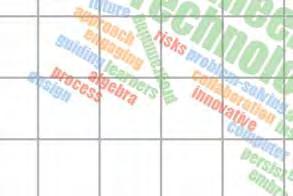










Adaptive lessons are designed for children with disabilities who require one-on-one, specialized instruction, including kids with

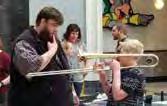
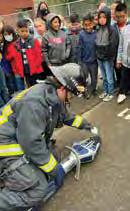
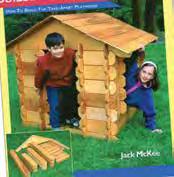




neurological differences. This support is most frequently available in sports such as downhill skiing or swimming, and often only at larger resorts or learning centers.





A parent of a young neurodivergent skier testifies to the difference that adaptive lessons made for their child: “He’s athletic, with endless energy, and a very good skier. We did [an adaptive] lesson, and he was in heaven because he didn’t have to wait for anyone and could do black trails. But they don’t have availability every day. We’ve tried other options, and none seem to be a fit [for him]. He loves skiing, and it seems to be very calming for him. The stimulus of lots of people and having to wait and not do things according to his plan causes him problems though.”






Private or small-group instruction also might be needed in sports for which there are safety concerns in a larger group setting, such as swimming. When cost and availability of private or adaptive in struction are barriers, look for support in sports programs empha sizing skill acquisition over competition, such as those offered by a parks and recreation department or YMCA facility, or through an organization such as Outdoors for All (outdoorsforall.org). This vol unteer-run nonprofit delivers adaptive and therapeutic recreation for more than 3,000 children and adults with disabilities every year.

Saturday November 5, 2022 10:00am-3:00pm * Free Event * Learn more at SkagitChildrensMuseum.net Funding provided by City of Burlington & Skagit County Lodging Tax Grants. VisitSkagitValley.com Bring kids of all ages to participate in Science, Technology, Engineering, Art & Math activities... and learn about Disaster preparedness! Full STEAM Ahead Disaster Preparedness In partnership with PARENTMAP / OCTOBER 2022 / 11
continued from page 11
Once your child has gained more skills and adjusted to the expectations of team sports, you might feel ready to try a “competitive” program.
4/ Prioritize sports in your busy family schedule. For ND children in particular, appointments with essen tial providers, such as a speech-language pathologist, occupational therapist or counselor, seem to overfill the family schedule, leaving little time for participation in after-school activities. Parents often wait many months (and maybe even a year or longer) for those coveted time slots and know that they can’t be easily changed, if rescheduled at all. All the same, notify your child’s providers well in advance (i.e., as many months in advance as possible) of the start of the upcoming sports season about potential conflicts, emphasizing the importance of sports to the social and emotional, not just physical, development of your child.
Likewise, speak with your child’s coach and/or the sponsoring organization about your family’s schedule. Some teams practice later in the day, especially starting in the middle school years. You might find more opportunity for schedules to align than you anticipate.

5/ Remember the special experiences and assets that your ND child brings to athletics. Finally, don’t forget the special gifts bestowed by your child’s neurodivergence. ADHD kids are often the most energetic and enthusiastic of teammates! Autistic children can show remarkable dedication for, and perseverance in, their special interests, including athletics.


All neurodivergent children have confronted obstacles and overcome challenges in their daily lives and at school, and these experiences will serve them well in their sport endeavors. You might find that it is your child who kicks the ball the hardest, supports their teammates with the most passionate loyalty, or smiles the widest whether they win or lose.
Don’t underestimate your ND athlete; get out there, knowing you’ve set the stage for success, and watch them have fun! ■
Candace Barlow lives in the North Sound area and writes about parenting, neurodiversity, education and travel. When she’s not writing or editing, you can find her hiking, reading or spending time with her family.


FEATURE LOCAL RESOURCES / ARTS + ACTIVITIES
12 / PARENTMAP.COM
Hauntingly Fun Ideas for Your Halloween Celebration
Make this Halloween one that will really lift their spirits with these eerie-sistible ideas for festive food and frighteningly good fun

Trick and treat yourself
Candy doesn’t have to be the only star attraction of Halloween. Eat, drink and be scary with clever and creepy party snacks (parentmap.com/ party-snacks) and easy treats (parentmap.com/treats-forlittle-boos) that will be sure to please even the pickiest ghouls and boys.
If you are looking to increase your spooky repertoire, you’ll be Hallow-queen (or -king) of the Year if you make one of the adorable Halloween cupcake recipes (parentmap.com/spooky-cupcakes) from the fa-boo-lous new cookbook “Spooky Snacks and Treats.” It’s packed with recipes for treats that any little zombie would consider the best things since sliced head. Bone appétit!
Give ’em pumpkin to talk about
If you are looking for gourd-geous pumpkin decorations that will last more than a few days (I’m looking at you, squirrels!), try one of our no-carve, no-mess ideas (parentmap.com/no-carve).
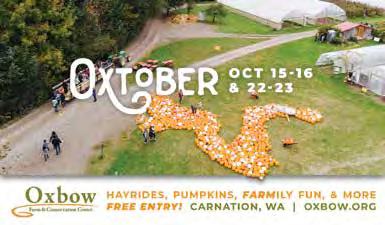
Kids will be heading out the door to trick-or-treat before you know it! Check out clever ideas for DIY costumes (parentmap.com/ DIY-costumes) and adorable ideas to dress up your baby or toddler (parentmap.com/costumes-for-littles). Get out your glue gun (or click on that Amazon link) today!

Creepin’ it real Getting the house ready for Halloween is my kids’ favorite part of the season (well, besides all of the candy). You’ll find great ideas for creepy outdoor decorations (parentmap.com/decorations) as well as some clever dollar-store hacks (parentmap.com/ dollar-store) to avoid breaking the bank.
Movies, crafts and games

Trick-or-treating only lasts one night, but you can keep summoning the Halloween spirit all month long! On a dark and stormy October night, snuggle up and watch a scary movie with your older kids (parentmap.com/spine-tinglers), or a not-so-scary one (parentmap.com/not-scary) with the younger crowd.
Hosting a monster mash this season? You’ll be the ghostess with the mostess with our roundup of crafts ideas and activities (parentmap.com/Halloween-crafts) to keep your little partygoers engaged. And when they need to get up and move, consult our list of fun, inexpensive Halloween games (parentmap.com/ halloween-games).
Make it fun for everyone While Halloween can be fun, it can also be completely overwhelming. There are plenty of ways you can support neurodiverse kids in your community so they can enjoy the celebration in thoughtful, sensory-friendly ways (parentmap.com/ neurodiverse-halloween).
Happy Halloween! ■
— Kari Hanson

Family Fun Calendar

Find your adventure today! Our online calendar is your go-to guide for family activities around Puget Sound.
ParentMap.com/calendar


LOCAL RESOURCES / HARVEST + HALLOWEEN
PARENTMAP / OCTOBER 2022 / 13
wwmedgroup.com/parent-map

SWIMMING
Swim lessons for kids and adults of all levels. Swim team, teen and family float-in movies and much more!

FITNESS
Try something new like yoga, dance, HIIT, TRX, or personal training. Fitness inclusive memberships are available.
Screen Time and Your Child’s Brain:
A webinar on technology’s impact on mental health and development
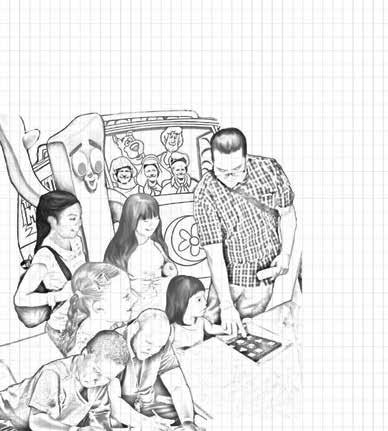
Learn how screen time detunes the nervous system, slows development, and undermines attachment.




CHILDREN’S

Preschool and Before and After Care programs include swimming, snacks, games, and so much more.
Speakers are Victoria Dunckley, M.D., child psychiatrist and author of “Reset Your Child’s Brain,” and Melanie Hempe, BSN, founder of ScreenStrong, a nonprofit providing alternative ways to raise kids in a screen-dependent world. Hosted by Paula Poundstone.
425.746.1160
drdunckley.com COUPON CODE: ParentMap30



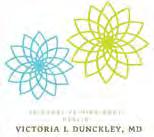





 Coming
Washington State History Museum
Coming
Washington State History Museum
PROGRAMSSAMENA
WELLNESS EDUCATION FUN SAMENA.COM
to the
this fall!
1022_victoria_dunkley_1-4.indd 1 9/14/22 2:35 PM 14 / PARENTMAP.COM PrimaryCare fortheWholeFamily 7SnohomishCountylocations Adult&childwellchecks·Immunizations·Sportsphysicals Developmentalmilestonestracking·Mentalhealthsupport
Locally Owned Acceptingnewpatientsfor:
Parent Voices
9 Things Breast Cancer Taught Me About Raising Teens
One mindful mom’s journey and discovery of what truly matters
By Nikki McCoy
In the summer of 2021, just weeks before my 40th birthday, I got the devastating news that 1 in 8 women will receive every year: I was diagnosed with breast cancer.
I had found a small lump near my armpit, and it had spread to my lymph nodes. I carry the BRCA1 gene mutation and was diagnosed with stage 3 breast cancer. My then 15-year-old son was the first person I saw after getting the shocking call. With zero composure, I crumpled into his arms in the first significant episode of role reversal in our relationship. Bigger than I am, he didn’t cry — he comforted me simply with his presence.

Now that I am a year out, after surgery, chemo, radiation and integrative care, and now with no evidence of disease (yay!), I have been reflecting on what has been one hell of a journey. And what stands out sharply is that my approach to parenting — while still built on a foundation of family values — has drastically shifted.
Here’s what I learned:
1/ Let go of control. Seriously, lower the bar. A cancer diagnosis — or any serious life-altering change — forces a person to look inward. A world that was once expansive with karate lessons, school plays and book club now shrinks to remembering to stay hydrated and making it to weekly doctor’s appointments. Only activities that were absolutely necessary mattered while my brain was in survival mode. That’s all I could control. During this time, did my family wobble? One hundred percent. My oldest teen’s grades dropped to D’s. My husband had restless nights. They were all in survival mode, too. (Remember, this is also during COVID-19.) Was I concerned for their wellbeing? Of course. Was there anything I could do about it? Nope. Not this time. Mom could not come to the rescue.
As we all regained our bearings and trended toward a new normal,
the lesson remained: I must have my oxygen mask on first before I can take care of others. My family is no longer micro-managed (albeit unwittingly) by me. I say yes, a lot. I trust a lot. I don’t stress like I used to. I can’t remember the last time I had a power struggle with either of my teens. And it’s been great for us all.
2/ Teens still process through play. This one surprised me. While play looks different for older kids — think pop culture and school interactions — I was given windows into how my kids were using creative outside outlets to process what was happening. My 16-year-old watched all five seasons of “Breaking Bad.” (Before the diagnosis, this would never have been allowed. See lessons nos. 1 and 3.) While some of the action and drama was surely the draw, the main story line is about a parent who has cancer and wants to take care of his family. Frequent scenes with doctor’s appointments and family dynamics around diagnosis and treatment pepper the plot line. My therapist and I agreed that watching it was one way for my kid to make sense of what was happening.
In school, a history project had to show how our family line has been affected by historic events. My son drew a giant awareness
The author with her two sons
PARENTMAP / OCTOBER 2022 / 15
continued from page 15
PARENT VOICES ribbon, filled with facts about the evolution of health care and surgery options for breast cancer patients. Surely, researching, writing and coloring were all thera peutic.
3/ Let them be. Of course, health and safety boundaries still exist, but otherwise, I no longer question my sons’ choices. During my “non-parenting” phase when I was focused only on treatment, they showed me even more clearly that they are their own people. Tomorrow is never guaranteed, but I now know that they would be okay no matter what happens. Do they want to go all day playing video games with their doors closed only to emerge for meals in the evening? That’s fine with me. They are bright and engaged when we do interact.
Do they want to handle their homework on their own (even if nonexistent) schedule? By all means. Who am I to determine the best time for them to get their work done? They are perfectly capable of listening to their inner voice and managing their own time and priorities. I don’t need to do any of that anymore. And it’s liberating. They know I’m here when they need me.
4/ Carve out time for fun.

While the lessons above are about resiliency, this one is about letting loose. Teens are still kids after all. For Mother’s Day, my almost 13-year-old made me a card that included five things he loves about me. (Be still, my heart.) And one that stood out is that he appreciated that I made time for having fun. It’s not something I had noticed, but as I reflected, I remembered that during my windows of strength, we did things like go to the movies, play board games or make a trek into nature. To celebrate finishing treatment, we went to Disneyland. Making memories together is essential in our family, and now that my son has pointed that out so blatantly, I am even more intentional about finding time to laugh, play and let loose.
5/ Be discreet — but tell the truth. I had to be honest about my diagnosis with my kids. I would read straight from doctor’s notes and chemo pamphlets. I shared blood work, and we looked up medical terms together. Having the facts helped us cope and created a safe place for transparency. Did they need to know the ins and outs of the prognosis? No. The risks of chemo or recurrence? No. But did they deserve to know what was happening medically? Absolutely.
16 / PARENTMAP.COM
Follow







































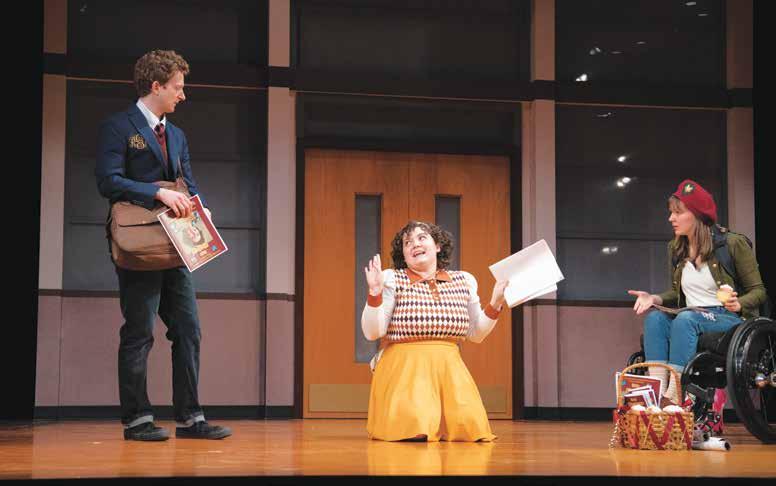

 MacGregor Arney, Meme García, and Meredith Aleigha Wells in Teenage Dick (2022).
MacGregor Arney, Meme García, and Meredith Aleigha Wells in Teenage Dick (2022).
Connect with your teen #irl @seattlerep SEASON SUBSCRIPTIONS START AT $95! NAT T TE WA T TE TERS S Find enrichment in the arts this fall! seattlerep.org
us on social media Discover the latest parenting tips, tricks, adventures, activities and more! @parentmap Parents: Feeling Depleted? Renew your strengths in this psychology and mindfulness-based program. Discover authentic connection with yourself and other parents to support quality family experiences. For parents with children of all ages. Sign-up for your 1st class free! pathwiseparenting.com 1022_pathwise_parenting_1-8h.indd 1 9/14/22 4:16 PM PARENTMAP / OCTOBER 2022 / 17
Jeffery Robinson, a former ACLU Deputy Legal Director, has been traveling the country for the past 10 years, asking all of us to examine who we are, where we come from, and who we want to be.
See the award-winning film, WHO WE ARE: A CHRONICLE OF RACISM IN AMERICA, now streaming on Netflix. thewhoweareproject.org



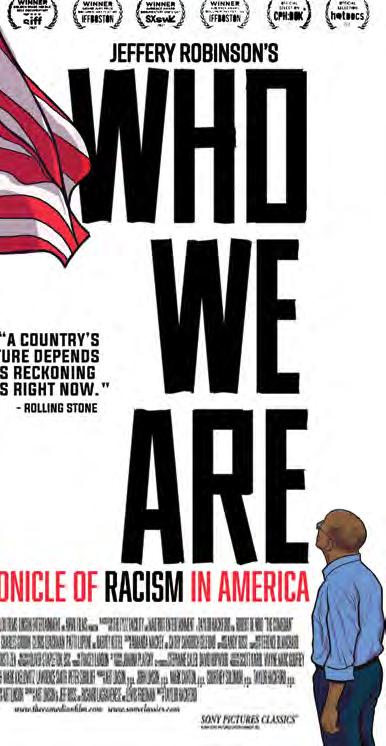
continued from page 16
6/ Get your affairs in order.

Facing the fear of death at age 40 knocked a little sense into me when it comes to legacy planning. It’s important to prepare an advanced directive, reexamine and update your will (if needed), and, if you’re a little grim like me, even write your good-bye letters and create your funeral playlist. While somewhat unsettling to do this type of preparation, it’s ultimately comforting to know that these crucial documents are in place.
7/ They may be at risk for cancer, too. Family health history matters. My father had pancreatic cancer; his mom and aunt both had ovarian cancer; my uncles had prostate cancer; and a cousin received the same diagnosis that I did. That’s because we all carry the BRCA1 gene mutation — and this makes us more susceptible to developing cancer. My sons have a 50/50 chance of inheriting the gene mutation. They can make a choice at the age of 18 about whether or not to get genetic counseling and testing. If they know their risk ahead of time, there are preventive measures they can take. Knowledge is power.
8/ They grow up fast.
While we can all agree that the pandemic has warped our sense of time, I can’t even believe the “Big C” year flew by so quickly. In the darkest days of chemo, time seemed at a standstill. And now, I have an eighth-grader and a junior in high school. Blink. Blink. I’m now looking into the future with a deeper understanding of how quickly time flies, how precious this one life is, and I am dreaming big and making plans.
9/ You’re still mom.
“Hey mom! What’s for dinner?” may be an expression I never tire of hearing. Though my perspective on what truly matters has shifted, and my teens had to take some leaps in maturity that I would never wish on anyone, the fact remains that I’m still their mom. They know — maybe even more so — that a relationship with their parent in the ultimate state of vulnerability and uncertainty is still one that they can rely on. We are all a little more understanding of the human condition, and our parent-child bond has not only survived, it has thrived. And for that, I am truly grateful.■
When Nikki McCoy is not writing, she’s keeping up with her two teenage sons, having pun wars with her hubby or channeling her inner Ciscoe Morris in the garden.
PARENT VOICES
1022_who_we_are_project_1-2v.indd 1 8/23/22 12:22 PM
18 / PARENTMAP.COM
Together, We Can Stop Bullying
When families, schools and communities work together, it’s possible to stop bullying. But first, we must understand it.
Bullying is unwanted, aggressive behavior that includes an imbalance of power. That is, the child who bullies uses some form of power to control or harm the child they are bullying. And bullying is a repeated behavior — or one that has the potential to be repeated over time.
There are four types of bullying: physical, verbal, social and cyberbullying. Physical bullying includes attacking someone (hitting, shoving, poking) or using body motions or facial expressions (clenching fists, pointing, glaring) to suggest an attack may happen. Verbal bullying includes threatening, taunting, teasing and name-calling. Social bullying often involves purposely excluding someone from a group and encouraging others to do so. It includes gossip, humiliation and rumor-spreading.
Cyberbullying happens over digital devices like phones, computers and gaming consoles. It can occur through calls, texts, emails, personal messaging, chats, games and social media. It includes sending, posting or sharing any sort of negative content about someone else that embarrasses or humiliates them.
It’s important to understand the roles kids play in bullying. In addition to those who bully and those who are bullied, other children witness the behavior. Some kids assist the child doing the bullying. Others reinforce the bullying behavior by being a lively, loud audience. Some, known as outsiders, observe passively and appear neutral. And some kids actively defend the child being bullied and try to help them get out of the situation.
Bullying is upsetting and potentially harmful for all involved. It can cause serious, long-lasting problems for both those who are bullied and those who do the bullying.
It’s essential to talk regularly with your child about bullying. Ask open-ended questions about what they’ve seen or experienced themselves. Role-play scenarios so your child can practice how to prevent and safely stand up to bullying.

Mental Health Resource Spotlight

Washington’s Mental Health Referral Service for Children and Teens
This free, telephone-based service provides mental health referrals for children and teens 17 and younger from across Washington.
Youth Mental Health First Aid
Youth Mental Health First Aid is a free class
that will improve your knowledge of mental health and substance use problems and will teach you how to connect youth with care when needed.
to learn more: Visit seattlechildrens.org/mental-healthresources.
Parents and caregivers can be powerful anti-bullying role models. We can defend and assist those who need help, especially those who cannot fully help themselves. Simply by speaking out and acting in a kind and compassionate way, we can be sure our children see us building up others whenever possible. And grownups and kids alike can become activists in our schools and communities. Together, we can put an end to bullying.
to learn more: Visit stopbullying.gov.
A Seattle Children’s Publication | Fall 2022
Make a Home Fire Escape Plan



If there is ever a fire in your home, you may have only a few minutes to escape after a smoke alarm sounds. Every home needs working smoke alarms, and every family must have a home fire escape plan. Be sure there are smoke alarms in every sleeping room, outside of each sleeping area and on every level of your home. Your family also needs to make and practice an escape plan. Create a simple map of your home that includes all windows and doors, and then
Room Share Rather than Bed Share
Some parents choose to bed share with their babies. It may be done to make breastfeeding more convenient. Often, it’s simply what their family has always done with their babies. Not everyone is aware that bed sharing significantly raises the risk of sleep-related injury or death. The American Academy of Pediatrics recommends that parents sleep in the same room — but not in the same bed — as their baby for at least the first six months. Anytime babies are put down to sleep, they should be placed on their backs on a firm, flat sleep surface. The mattress must fit tightly in the crib or bassinet, with no gaps around the edges.
identify at least two ways out of each room. Also, agree on a safe meeting spot outside. The links below have a worksheet for mapping and more on fire safety for families.
to learn more: Visit nfpa.org/~/media/Files/FPW/Educate/2022/ FPW22GRID.pdf and safekids.org/safetytips/field_age/ special-needs/field_risks/fire.
Use only a fitted sheet on the mattress; nothing else should be in the sleep space. Following these guidelines reduces the chances of an infant suffocating or dying from sudden infant death syndrome (SIDS). Finally, be sure that any crib, bassinet, play yard or portable crib you use meets the U. S. Consumer Product Safety Commission’s current safety standards.
to learn more:
Visit healthychildren.org/English/ages-stages/ baby/sleep/Pages/A-Parents-Guide-to-Safe -Sleep.aspx.

Talk with Kids About Risky ‘Challenges’

It’s important for parents and kids to talk about the dangers of viral ‘challenges’ that urge kids to try dangerous stunts. Some risky challenges involve ingesting things — such as biting into a liquid laundry pod or eating an intensely hot pepper.
Other challenges dare kids to get high or faint — by taking several antihistamines, by hyperventilating or by having someone choke them. Some challenges push kids to steal items from school, such as the restroom soap dispenser or their teacher’s coffee cup. Other stealing challenges dare kids to shoplift a particular item from a grocery store. Not surprisingly, challenges are designed to create sensational social media. Kids are urged to video their stunts and share them online.
There’s a lot that’s wrong with these challenges. Kids have been seriously injured, suspended from
school and even arrested and prosecuted. But because social media glamorizes these stunts, tweens and teens can be tempted to try them. They don’t always think through the risks or the consequences. Even stunts that seem silly and fun can result in injury. Kids are getting hurt from the duct tape challenge, whose goal is to escape after friends bind
you up in the super-sticky, heavy-duty tape.
New challenges are popping up all the time, and even level-headed kids can get pulled in. These challenges are a great example of why a key goal of parenting is to help kids develop critical-thinking skills and sound judgment. Thoughtful conversations and positive role-modeling are powerful tools. When kids understand the risks and potential consequences, they can make wise decisions and avoid bad situations — even when you’re not with them.
to learn more: Visit commonsensemedia.org/articles/ viral-youtube-challenges-internet-stuntspopular-with-kids.
Prevent Flu and COVID with Vaccines

The annual flu vaccine is recommended for everyone age 6 months and older, with rare exceptions. Aim to get your child the flu vaccine by the end of October. The COVID-19 vaccine is also recommended for everyone 6 months and older. Get the COVID vaccine for your child just as soon as they are eligible. It’s safe to get a flu vaccine, a COVID vaccine and other routine immunizations during the same medical visit. However, don’t put off a COVID vaccine so you can get it at the same time as a flu shot or another shot — get it as soon as possible. Be sure to keep your child current with their COVID doses and all their routine vaccinations. Ask your child’s doctor if you have any questions about vaccines.
to learn more: Visit cdc.gov/vaccines/parents.
Quick Tip


On your child’s car seat, be sure the chest clip (also called a retainer clip) that holds the shoulder straps together is at armpit level.
facebook.com/seattlechildrens
instagram.com/seattlechildrens

twitter.com/seattlechildren
Warts

Warts are common, harmless skin growths caused by a virus. These raised, roughsurfaced bumps can appear on any part of the body — especially hands, feet and face. Warts are contagious and can be spread by touch. Keeping them covered can help prevent their spread. In young children, warts often go away on their own. Sometimes it’s difficult to get rid of warts for good. Liquid nitrogen and salicylic acid are two common treatments that destroy warts in the outer layer of skin where they grow. Other methods involve taping the wart or soaking the area in hot water. If you have questions about warts, rashes or bumps, or how to treat them, ask your child’s doctor.

to learn more: Visit seattlechildrens.org/pdf/pe577.pdf.
Regional Clinic Locations
A Tasty Activity
You can make your own healthy after-school or on-the-go snack mix with your school-age child. It’s simple, fun, and can save you money, too. Use unsalted nuts or seeds (pumpkin seeds are tasty and plentiful this time of year) plus unsweetened cereals and plain popcorn. For a bit of chewy sweetness, toss in a few raisins, craisins or dried cherries. Invite your child to shop with you and choose the ingredients. This is a great way to practice reading food labels, paying special attention to added sugar and sodium. For extra fun, decorate the snack bags, name your mixes and share your recipe with friends. Important safety note: due to the choking risk, nuts and popcorn are not for kids under age 4.
to learn more: Visit eatright.org/food.

Primary Care Clinic
Kid Bits
youtube.com/seattlechildrens
Main Hospital Numbers 206-987-2000 866-987-2000 (Toll-free) Online Resources Visit seattlechildrens.org for the following: • Child Health Advice • my Good Growing email newsletter • Doctor Finder • On The Pulse and Autism blogs • Medical condition information • Health & safety information • Ways to help Seattle Children’s • Research Institute information • Bellevue • Everett • Federal Way • Olympia • Tri-Cities • Wenatchee • Odessa Brown Children’s Clinic Heather Cooper is the Editor of Good Growing, which is produced four times a year by the Marketing Communications Department of Seattle Children’s. You can find Good Growing in the January, April, July and October issues of ParentMap and on our website seattlechildrens.org. For permission to reprint articles for noncommercial purposes or to receive Good Growing in an alternate format, call 206-987-5323. The inclusion of any resource or website does not imply endorsement. Your child’s needs are unique. Before you act or rely upon information, please talk with your child’s healthcare provider. © 2022 Seattle Children’s, Seattle, Washington.
Classes and Events
As the COVID-19 situation changes, we continue to adjust or postpone our classes and events to follow public health recommendations. We are offering some classes online while some are on pause. Please check our website for the latest information. Scholarships are available. If you would like to ask about a scholarship, use the contact information for the class you’re interested in to connect with the registrar.
PARENTING CLASSES
Autism 101
This free, 90-minute, on-demand session provides information and support to parents and families of children recently diagnosed with an autism spectrum disorder (ASD). Topics include up-to-date, evidence-based information about ASD, behaviors associated with autism, autism prevalence, treatments available and resources for families.
Watch the lecture, in English or Spanish, at seattlechildrens.org/autism101. Email Autism101@ seattlechildrens.org if you have questions.
Conversations About Autism
Conversations About Autism is a series of free 60-minute classes for parents and caregivers of children with autism who wish to better understand autism spectrum disorder. In these sessions, experts and advocates share their knowledge and perspectives on autism as well as helpful tips for supporting a child, adolescent or young adult with autism. Each class features a different topic, such as early intervention, transition to adulthood, feeding support and more.
Sessions take place on the third Thursday of the month from 7 to 8 p.m. Learn more or view past sessions at seattlechildrens.org/ conversationsaboutautism. Email Autism200@ seattlechildrens.org if you have questions.
Babysafe
Babysafe is a 4-hour class for new and expectant parents and others who care for babies. Topics include infant development, baby safety, injury prevention and care of common injuries for infants from birth through 12 months of age. Infant CPR is demonstrated and practiced, but this is not a certification class.
This class is offered virtually via Zoom. The fee is $93 and each registration is good for two people from the same family. Learn more, view dates and register at seattlechildrens.org/classes or call 206-789-2306 if you have questions.
Finding Mental Health Care in Washington State: A Class on Where to Start
This free, video-based class is for families who are seeking mental health services for children or youth under 18 and who are not familiar with the mental health system in Washington state.
This class is available in English and Spanish via Zoom. Learn more, view dates and register at seattlechildrens.org/classes.
Youth Mental Health First Aid
This free class is for adults who live or work in King County and regularly interact with adolescents ages 12 to 18. Youth Mental Health First Aid will improve your knowledge of mental health and substance use problems and will teach you how to connect youth with care when needed.
Youth Mental Health First Aid is available as a two-part virtual series. The series includes a self-guided course and a live instructor-led course. The date you register for is the date of the live instructor-led course. Learn more, view dates and register at seattlechildrens.org/classes or call 206-987-9878 if you have questions.
CHILD, PRETEEN AND TEEN CLASSES
Better Babysitters
For youth, ages 11 to 14. Students learn about responsible babysitting, basic child development, infant and child care, safety, handling emergencies, age-appropriate toys, business tips and parent expectations.
This is a two-part class, with sessions taking place via Zoom on two consecutive weekend dates. Each session is two hours long. The fee is $50. Learn more, view dates and register at seattlechildrens.org/classes or call 206-987-9878 if you have questions.
CPR and First Aid for Babysitters
For youth, ages 11 to 15. Topics include pediatric CPR, treatment for choking, and first-aid skills. Students receive an American Heart Association Heartsaver Pediatric First Aid, CPR, AED completion card, which is valid for two years.
This class is offered as a two-part series. The series includes a virtual session as well as a short in-person skills check. The fee is $75. Learn more, view dates and register at seattlechildrens.org/ classes or call 206-987-2304 if you have questions.
The Chat
The Chat is an online workshop series on puberty and sex. Offered via Zoom, each 45-minute workshop is for preteens 9 to 12 years old, plus a parent or trusted adult.
You may take any individual workshop or all five. While families can choose to attend any combination of workshops, the information in earlier sessions provides a foundation for understanding later sessions.
The fee is $30 per workshop or the series of five for $100. Learn more, view dates and register at seattlechildrens.org/classes or call 206-789-2306 if you have questions. See a trailer for The Chat at greatconversations.com.
EVENTS
Free Online Mindfulness Groups for Parents and Caregivers
Join a culturally relevant mindfulness and compassion session by phone or with Zoom. Sessions are offered for Black parents, parents of a child with special needs, Spanish-speaking parents, as well as any other parents or caregivers. Take part in activities and mindfulness practices led by parents for parents, and share strategies to cope with challenges.
Learn more and view dates and times at seattlechildrens.org/clinics/odessa-brown/ community-programs/mindfulness-program.
Free Car-Seat Checks: Oct. 22 in Seattle Tuesdays in Bellevue
Learn how to safely secure your child in the car. Child passenger safety experts will check your child in a car seat, booster seat or the seat belt and answer any questions you may have. Car-seat checks are by appointment only and will follow COVID-19 safety protocols.
Learn more and register for an appointment at seattlechildrens.org/carseatchecks.
Free Virtual Car-Seat Checks
King County Certified Child Passenger Safety Technicians are offering free virtual car-seat check appointments via video-chat platforms. For more information, email Laura Miccile at laura.miccile@ kingcounty.gov or call 206-477-8664.
South County Fire and Safe Kids Snohomish County offer free virtual car-seat classes. Registration is required. Visit southsnofire.org/ education/child-passenger-safety.


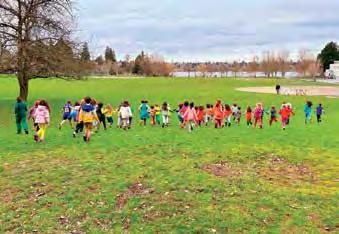





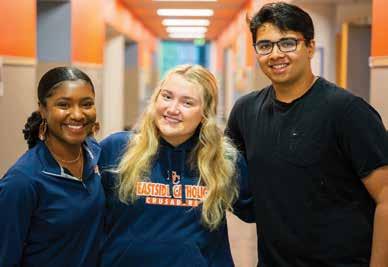
FOUNDATION GRADES 2-8 MIDDLE SCHOOL GRADES 6-9 FULL YEAR & SUMMER SCHOOL info@morningsideacademy.org 901 Lenora Street. Seattle, WA • 206.709.9500 Experience Seattle's Independent Jewish Day School, located in the heart of the Green Lake neighborhood. www.sjcs.net/admissions Tours and applications for the 2023-2024 school year now available! PARENTMAP / OCTOBER 2022 / 23 LOCAL RESOURCES / SCHOOLS, PRESCHOOLS + NWAIS @etonschool.washington @EtonSchoolWA etonschoolwa 2701 Bellevue-Redmond Road Bellevue WA 98008 Age 3-Grade 8 “Eton School has done an excellent job preparing my children to be compassionate leaders and problem‑solvers.” ~Parent of Alumni 425-881-4230 Learn more about our program, schedule a tour, and get answers to your questions! www.etonschool.org/admissions Accepting Applications for 2023‑2024 Open House Sat., 5 November 10 a.m. ‑12 p.m. Learn More & Register at eastsidecatholic.org/visit Coed, Grades 6 - 12 Unlock Potential Experience Faith Discover Community Join Us at an Open House! High School - October 9 Middle School - November 6 Middle School & High School - December 6
Financial Planning Strategies for Families Raising Children With Special Needs
 By Susan Zurek and Monica Padineant
By Susan Zurek and Monica Padineant
Families raising children with disabilities not only need to provide for their children’s needs — medical, developmental and educational among them — they also need to plan for how these needs will be paid for, now and in the future. While there are many things to consider, from the standpoint of financial planning, there are two strategies that need to be part of the planning.
529 ABLE plans
Many parents are familiar with 529 college savings plans, but in our experience, not as many know about 529 ABLE accounts, which are tax‐-advantaged savings accounts for individuals with disabilities. These accounts provide funding for disability-related expenses by supplementing private insurance, Medicaid, Supplemental Security Income (SSI) or other financial resources. Funds from a 529 ABLE account can be used to pay for qualified disability expenses, including but not limited to: education costs, housing, transportation, employment training, assistive technology, personal support services, health-care expenses, financial management and other expenses that help improve health, independence or quality of life.
As with the 529 plan, anyone can contribute to the account (though there are contribution limits). The other good news is that assets in a 529 ABLE plan are not counted for eligibility purposes for federal means-tested programs.
Special needs trusts
Special needs trusts are another option that can alleviate some of the uncertainty by providing ongoing financial support for a loved one, as needed over time.
How to plan, save and protect assets for what matters most
LOCAL RESOURCES / SCHOOLS, PRESCHOOLS + NWAIS
24 / PARENTMAP.COM
A special needs trust is typically created for a family member with a disability who may now or in the future qualify for government assistance, such as SSI or Medicaid. These trusts are important because the rules for qualifying for government programs are very specific.
There are three basic types of special needs trusts that can be created, depending on the beneficiary’s current financial situation.
If the beneficiary previously owned the assets going into the trust (by way of inheritance, lawsuit proceeds or beneficiary designation), those funds must go into what’s known as a first-party special needs trust. If the beneficiary then uses government benefits such as Medicaid, payback rules apply, and a lien could be placed on the trust at the beneficiary’s death equal to the total amount of government assistance provided. This applies to government assistance received over the beneficiary’s lifetime, not just the lifetime of the trust. First-party special needs trusts are a common type of trust used when a disability occurs or emerges later in life and after assets have been acquired.
The most common type of special needs trust is known as a third-party special needs trust. These trusts are usually set up by parents or grandparents for a family member with special needs who may be eligible for public benefits now or later in their lifetime. These funds are managed and distributed by a trustee, can never be placed outright into the hands of a beneficiary and, in contrast to a first-party special needs trust, are not subject to the Medicaid payback requirement.
Finally, pooled special needs trusts are offered and managed by a variety of nonprofit organizations to benefit many different beneficiaries with disabilities. Like a mutual fund, incoming assets are commingled, invested and then distributed in proportion to each beneficiary’s share of the total amount.
Choosing a trustee for a special needs trust is critically important. That trustee must be highly knowledgeable about trust laws and regulations, as how the trust is set up and the assets are distributed can have significant tax and other financial implications.
Learn more at parentmap.com/plan. ■
Susan Zurek and Monica Padineant are certified financial planners and directors at Laird Norton Wealth Management.
The
Call 425-883-3271 for a tour.
Child-centered, joyful atmosphere with strong academic focus
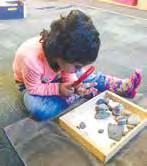


Preschool, kindergarten, and STEAM Enrichment Family owned and operated since 1977






LOCAL RESOURCES / SCHOOLS, PRESCHOOLS + NWAIS
www.sammamishmontessori.com 425-883-3271
Sammamish Montessori School In Redmond
Now Enrolling FD20_sammamish_montessori_1-8h.indd 1 7/30/20 5:20 PM PARENTMAP / OCTOBER 2022 / 25







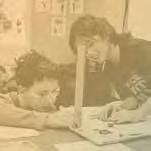



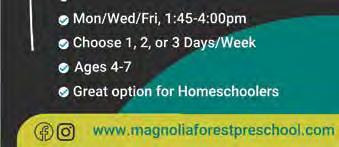
LOCAL RESOURCES / SCHOOLS, PRESCHOOLS + NWAIS eastsideschool.org 425-922-6792 Jennifer@eastsideschool.org Eastside Academics School Enrolling at both Bellevue and Issaquah campuses • Small class sizes • College prep • Dual enrollment 1022_eastside_academics_1-4.indd 1 9/14/22 2:35 PM www.northwestschool.com | 206-364-4605 | Shoreline, WA We provide deaf and hard-of-hearing children with the foundation to thrive socially and academically –in the classroom, at home, on the playground and beyond. SOUNDVIEW SCHOOL now accepting applications www.soundview.org (425) 778-8572 a small, independent school in Lynnwood, WA 26 / PARENTMAP.COM
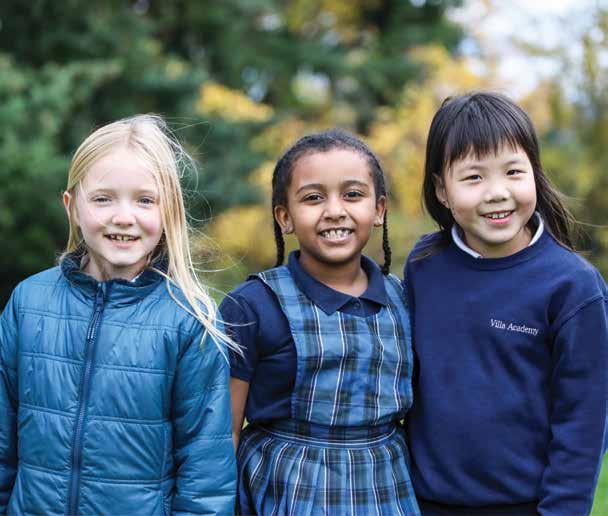







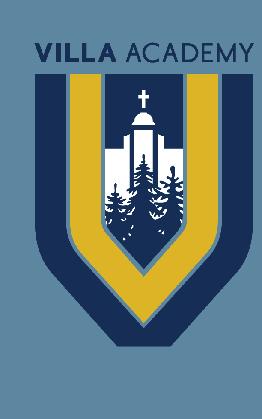








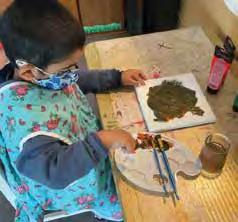

















LOCAL RESOURCES / SCHOOLS, PRESCHOOLS + NWAIS C M Y CM MY CY CMY K ai166248554210_ParentMap_9-6.pdf 1 9/6/22 10:32 AM N O W E N R O L L I N G NOWENROLLING!! C S W S P L A Y . O R G CSWSPLAY.ORG October 22, 2022 | 10:00 a.m.-12:00 p.m. www.forestridge.org RES RID E HEA To learn more or join a virtual information session, visit All-Girls, Independent, Catholic Grades 5-12 Join us for an Open House Why all-girls? Because there’s no better way to build competent, confident and courageous young women. PARENTMAP / OCTOBER 2022 / 27
October Play List
15 ways to have a ball this fall
By Nancy Chaney
Check out many more happenings online at parentmap.com/calendar.
We can always count on October, the first full month of fall, to serve up a cornucopia of seasonal treats. Pumpkins, costumes, apple cider and farm fun — all that and more are on tap for your October family fun plan. Pick out your costumes, get your sweet tooth primed and stack your calendar with all of this good stuff.
� For farm fun without leaving the city limits, trot on over to Kelsey Creek Farm Fair in Bellevue for wagon rides, interactions with barnyard animals, pedal tractors and fun with pumpkins by the big white barn. Admission is free; some activities require a fee. The Farm Fair takes place Saturday, Oct. 1, 11 a.m.–4 p.m. parentmap.com/kelsey-creek
� With a theme of “Livin’ the Stream” this year (LOL!), Issaquah Salmon Days will cel ebrate our region’s iconic fish with a parade, music, a kids’ obstacle course, dock dogs and more. Get fishy Saturday–Sunday, Oct. 1–2, 10 a.m.–6 p.m. parentmap.com/salmon-days
� Get caught up in collective Lego fever at Seattle’s Lego convention, BrickCon. Marvel at creations by master builders, let creative juices flow in the building zone and shop the brick bazaar. Buy tickets online for this event, which takes place at Seattle Center Exhibition Hall, Saturday–Sunday, Oct. 1–2, 10 a.m.–4 p.m. parentmap.com/brickcon
� Bring your eagle eyes to spot spawning salmon at five locations along the Cedar River: the Renton Library, Cedar River Park, Riverview Park, Landsburg Park and Belmondo’s Reach. While you can see salmon any day, visit on select weekend dates to learn from Cedar River
Salmon Journey naturalists, on site Saturday–Sunday, Oct. 1–2, 8–9, 15–16 and 22–23, 11 a.m.–4 p.m. parentmap.com/cedar-river
� Burien’s fall edition of its pop-up drive-in movie series features family movies and — yes! — bedtime-friendly screenings. If summer driveins ran too late for your crew, try this one. Entry costs $25 per car, and movies screen Saturday evenings, Oct. 1, 8, 15, 22 and 29, 8–10 p.m. Preregister. parentmap.com/buriendrive-in
� It’s a fall rite of passage for families: plucking the perfect pumpkin from the patch, snap

FAMILY FUN
28 / PARENTMAP.COM
Highlighted Events for October
Oct. 1 | Saturday Kelsey Creek Farm Fair
Bellevue parentmap.com/ kelsey-creek
Oct. 10 | Monday
Free parking at state parks for World Mental Health Day
Statewide parentmap.com/free-day

Oct. 12 | Wednesday
ParentMap Live Talk: “The Extraordinary Power of a Resilient Mindset”
Virtual parentmap.com/live
ping a sweet photo, snacking on cider doughnuts or kettle corn, enjoying mud on your boots. Plan your pumpkin pursuit with our roundup of great local pumpkin patches, open Oct. 1–31. parentmap.com/pumpkins
� It’s the last month to catch a tagged trout for a chance to win a prize in Washington’s statewide trout fishing derby. Find a stocked lake near you online, then head out early to reel in a prize-winning fish. Youths ages 14 and younger do not need a fishing license; ages 15 and older do. Derby continues daily, Oct. 1–31. parentmap.com/derby
� Bask in the beauty and serenity of Seattle Japanese Garden, alight in the colors of fall. Wander the garden’s trails during the Maple Festival, Oct. 6–16, for momijigari, the Japanese tradition of appreciating the art of nature. Garden admission $4–$8; children ages 5 and younger enter free. parentmap.com/maple-fest
� Back to fulfill all of your baklava dreams, the beloved St. Demetrios Greek Festival welcomes families Friday–Sunday, Oct. 7–9. Join in for delicious Greek food, music, dancing and other cultural festivities. Free entry; food for purchase. St. Demetrios Greek Orthodox Church in Seattle. parentmap.com/greek-festival
� Press apples into cider and join a life-size Oregon Trail game (plus, shh, learn a little history) at the family-focused Meeker Mansion Cider Squeeze. There’ll be apple treats aplenty and other fall-themed delights.
Pricing TBA; hitch your wagon to this fun in Puyallup on Saturday, Oct. 8, 10 a.m.–3 p.m. parentmap.com/squeeze
� In honor of World Mental Health Day, Monday, Oct. 10, visitors to Washington state parks can park their vehicles for free, without a Discover Pass. Take your tots or scoot out after school to bathe in the restorative power of the forest. parentmap.com/free-day
� Join ParentMap on Wednesday, Oct. 12 for an inspiring talk on fostering resilience in kids, and the importance of this trait, with returning speakers Sam Goldstein, Ph.D., and Robert B. Brooks, Ph.D. Join the live webinar 1–2 p.m., or watch the recorded session afterward. Sliding-scale fee of $0–$15; preregister. parentmap.com/live
� If your kids can’t imagine a day without devices, join an illuminating tour of what local life was like prior to the age of electricity. Fort Nisqually Living History Museum’s Candlelight Tours fill up quickly; book your family’s tickets soon. Tours cost $13–$18 per person and take place Friday–Saturday, Oct. 14–15, 6–9 p.m. parentmap.com/nisqually
� Northwest Folklife’s delightful Children’s Festival is back in person at Seattle Center and overflowing with kid-size fun. Try out capoeira, enjoy drag queen story time and visit the American Sign Language lounge to practice ASL, among loads of other hands-on activities for kids and families. This fest happens Saturday, Oct. 15, 11 a.m.–4 p.m. A donation of $20
per family is suggested. parentmap.com/childrens-fest
� Northwest Railway Museum’s fall excursions combine two things kids love: an opportunity to show off their costumes and a choo-choo ride on a real train. Enjoy the scenery inside and outside the train, amid a sea of cute costumed
kiddos and the gorgeous fall colors of the Snoqualmie Valley. Book your tickets, $15–$30, in advance for trains running Saturday–Sunday, Oct. 15–16, 22–23 and 29–30. parentmap.com/halloween-train ■
Nancy Chaney is ParentMap’s Out + About editor.
October 1-31
Tacoma Arts Month
Each October, Tacoma celebrates Tacoma Arts Month — t he month is full of arts and culture programs, with something for everyone. tacomaartsmonth.org
October 15
The 9th Annual Seattle Children’s Festival
Play, sing, dance and spark your curiosity at Seattle Children’s Festival by Northwest Folklife, 11 a.m.–4 p.m. at Seattle Center. Suggested donation $20. nwfolklife.org/scf

October 29
Pumpkins in the Park
Join us for this family-friendly Halloween event, including carnival games, vendors, pumpkin carving, a petting zoo, photo booth and much more. kirklanddowntown.org
 SPONSORED EVENTS
Photo by Christopher Nelson
SPONSORED EVENTS
Photo by Christopher Nelson
PARENTMAP / OCTOBER 2022 / 29
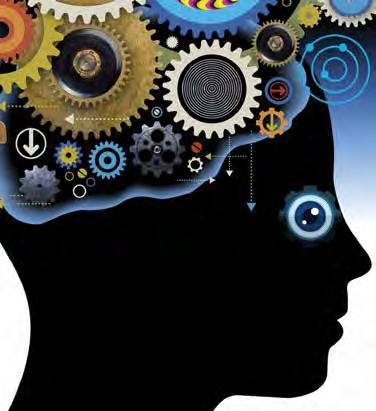



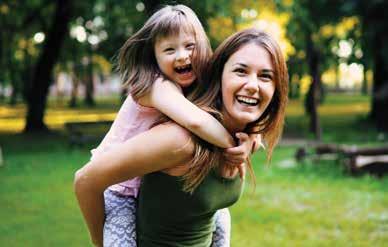
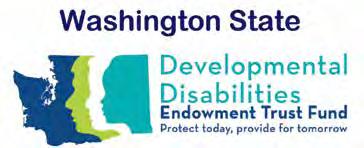
30 / PARENTMAP.COM Oct 15, 2022 –Jan 8, 2023 Your Mind & The Machine Generous support in Seattle is provided by: Media support is provided by: A flexible and convenient way for people living with disabilities to invest in their quality of life. Plan website: www.WashingtonStateABLE.com Customer Service Center: 1 844 600 2253 or 1 844 888 2253 (TTY) A flexible and convenient way for people living with disabilities to invest in their quality of life. WashingtonStateABLE.com • 1-844-600-2253 1022_wash_state_dept_commerce_1-4.indd 1 9/13/22 10:03 AM ddetf.wa.gov 1022_state_WA_dept_commerce_1-4.indd 1 9/13/22 10:05 AM
Turn

page to see
ParentEd Talks


Join ParentMap online to hear from experts on timely issues affecting families, educators and caregivers, and get top tips and tricks to level up your parenting game. Talk topics include overcoming trauma and overwhelm, ADHD as a gift, intimacy as you age and much more. Parenting is a trip, but ParentMap is with you every step of the journey.


lineup
all-star
Attendees will be eligible to win a $100 Amazon gift card at each ParentEd talk.


Attendees of the Nov. 17 and March 22 events will also be eligible to win a SNOO Smart Sleeper Bassinet (valued at $1,695) or a $500 Happiest Baby gift card, courtesy of Happiest Baby.

Don’t miss out! One quick registration gains you access to the entire series: ParentMap.com/live Presenting Sponsor:
the
our upcoming
of
speakers and topics 2022–2023
Upcoming ParentEd Talks
The Extraordinary Power of a Resilient Mindset | Oct. 12, 2022


Sam Goldstein, Ph.D., and Robert B. Brooks, Ph.D., co-authors of “Tenacity in Children,” have made a decades-long study of what components and skills contribute to the dynamic development of a resilient mindset, and will share strategies parents can employ to nurture this mindset and resilient behaviors in themselves and in their children.
What the Neuroscience of Spirituality Reveals About Our Capacity for Health, Happiness and Resilience | Nov. 1, 2022
In this ParentEd talk, award-winning psychologist and researcher Lisa Miller, Ph.D., will share the groundbreaking and surprising neuroscience of spirituality and how to engage it in our lives and parenting to enhance grit, optimism and resilience in ourselves and in our children — providing insulation against the ills of addiction, trauma and depression.

Curious Children, Wise Elders: How Childhood and Elderhood Shape Intelligence and Learning* | Nov. 17, 2022



Drawing on her own cutting-edge scientific research, Alison Gopnik, Ph.D., will reveal fascinating insights into how caregiving relationships in childhood and old age evolve distinctive capacities for cognition. Gopnik will explain how these two developmental life stages are related, and how the relationship between children and grandparents, in particular, is key to human culture.
Raising Critical Thinkers: Media Literacy for the Digital Age | Dec. 6, 2022
Tech-savvy kids today are constantly awash in a sea of unfiltered information. Julie Bogart, author of the indispensable book “The Brave Learner: Finding Everyday Magic in Homeschool, Learning, and Life,” will draw on her more than 20 years of curriculum development experience to share strategies for parents to coach critical digital literacy skills in their kids.
Past Forward: The Legacy of Racism in Modern-Day America | Jan. 19, 2023
Don’t miss this essential talk by Jeffery Robinson and Khalil Gibran Muhammad, two of the nation’s leading scholars on race, democracy, inequality and criminal justice. Their message: Forging a more equitable society now and in the future requires that the history of race and anti-Black racism be honestly represented in our nation’s classrooms.


Modeling a Loving, Equal Partnership for Your Kids | Feb. 7, 2023
Drawing on more than 40 years of research in the fields of intimacy and sexuality, Pepper Schwartz, Ph.D., will speak about how couples can zest up their relationship, sharing the secrets of happy couples and depicting the profound intimacy, mutual respect and deep friendship that can be achieved in a modern egalitarian partnership.
The Shifting ADHD/ADD Lens: Moving From Disability to Ability | March 2, 2023
Edward Hallowell, M.D., Ed.D., New York Times–bestselling co-author of the groundbreaking books “Driven to Distraction” and “Delivered From Distraction,” will share his insights on the latest brain science behind ADHD/ADD and his strengths-based approach to identifying, developing and celebrating the talents embedded in ADHD, dyslexia and other syndromes.

The Danish Way: Insights Into International Parenting* | March 22, 2023


In this fascinating ParentEd talk, cultural researcher and author Jessica Joelle Alexander will reveal the secrets of the Danish style of parenting that will help parents of all walks of life “raise the happiest, most well-adjusted kids in the world,” applying her “PARENT” acronym: Play, Authenticity, Reframing, Empathy, No ultimatums and Togetherness.
The Habits of Highly Effective Adolescents | April 18, 2023
Acclaimed sociologist and leadership coach (and mother of four teenagers!) Christine Carter, Ph.D., will draw on scientific research to outline realistic ways parents and educators can help preteens, teens and college students find focus and fulfillment through the development of effective habit formation, goal-setting and authentic leadership skills.
Transforming Trauma and Navigating Overwhelm | May 4, 2023

In this interactive talk, trauma exposure pioneer Laura van Dernoot Lipsky will offer practical tools to help us sustain, individually and collectively, in the face of trauma, secondary trauma and overwhelm. She will discuss what the consequences of trauma are as well as strategies for supporting ourselves and each other.

The Perils of Permissive Parenting | June 6, 2023
Behavioral scientist Elizabeth Jordan thinks today’s parents lack the determination required to uphold the appropriately strict values of “traditional parenting” that result in the best outcomes for kids. She’ll expose the common pitfalls of permissiveness that result in traumatized parents and entitled teens — and reveal the power of the most crucial ingredient of effective parenting: humor.
*Attendees will be eligible to win prizes, courtesy of Happiest Baby.
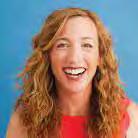
Register now: ParentMap.com/live
Seattle Children’s is proud to be the presenting sponsor of the 2022–2023 ParentEd Talks series
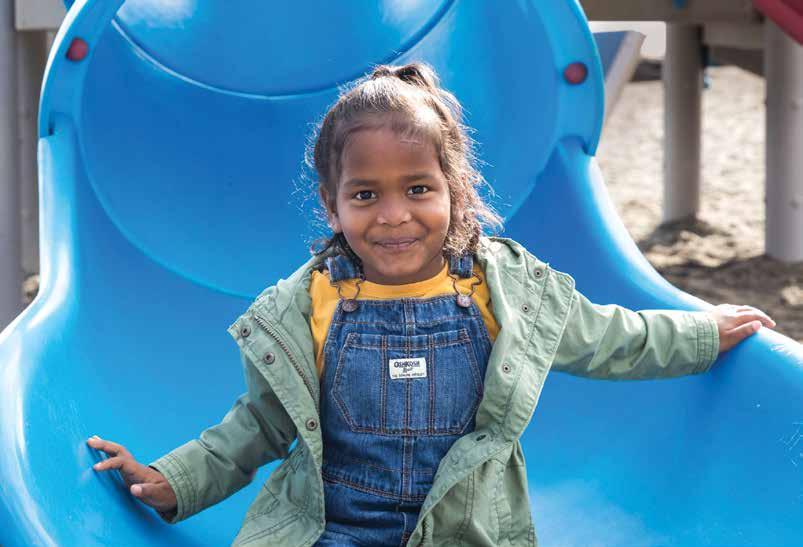
Keep your family safe and healthy
Scan the QR code below to sign up for Seattle Children’s Good Growing e-newsletter. Each issue shares timely tips to keep your family as safe and healthy as they can be.
Hope. Care. Cure.™
Radhika, patient at Seattle Children’s
34 / PARENTMAP.COM
Out + About
City Lit
9 iconic children’s books to inspire a family’s trip to the Big Apple — and get your kids reading
 Story and photos by JiaYing Grygiel
Story and photos by JiaYing Grygiel
Hustling, bustling New York City has long captured the imaginations of children’s book authors, inspiring the creation of some of the most beloved books we all grew up reading. From “Eloise” to “Fudge” to “Corduroy,” in New York City, you can step right into the setting of your favorite childhood story and make the book come alive.
Seattle’s own celebrity pooch, Larry, got lost in New York City when he lunged for a slice of pizza near the subway. (Can you blame him?) Co-author and illustrator John Skewes, who lives in Everett, launched Larry on his first adventure in 2007 with “Larry Gets Lost in Seattle.”
Even very young kids can make connections with books, Skewes says. One time, a friend with a 3-year-old daughter drove past the Space Needle. The child pointed out the window and said, “Larry!”
“I think something really important is going on with the books,” says Skewes. “They’re relating the books to the outside world.”
The series continued with “Larry Gets Lost in New York City,” and Skewes toured the city to work out the sketches. His favorite NYC landmarks, the Flatiron Building and the Chrysler Building, are both represented in the book.
What does he hope kids get out of his books?
“Honestly, I hope they enjoy reading,” says Skewes. “I just hope by seeing their world
in Larry’s books, that it opens the world of books to them.”
Whether you’re an armchair traveler or lucky enough to be planning a Big Apple vacation, here are some timeless, classic titles set in New York City to rediscover with your little readers.
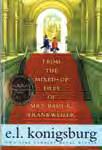
“Tales of a Fourth Grade Nothing” by Judy Blume The story: Peter Hatcher and his pesky little brother, Fudge, l ive with their parents in a two-bedroom apartment on the Upper West Side.

Where to go: Manhattan-residing kids use Central Park (centralparknyc.org) as their backyard. Central Park has 21 playgrounds! Just don’t try to fly off the jungle gym. Be sure to hit up Zabar’s (zabars.com), an Upper West Side institution, for bagels with lox and potato knishes.
“Eloise” by Kay Thompson
The story: Eloise is a spirited (some might say spoiled) girl who lives in the penthouse of The Plaza Hotel (the plazany.com) with her nanny, her dog and her turtle.
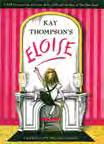
Where to go: There’s an Eloise shop in the lobby of The Plaza, where you can buy Eloise stuffies, outfits and, yes, books, too. For a very special splurge, you can even reserve the Eloise Suite, where everything is pink and white. Bonus points if you order room service.
The story: Claudia and her brother, Jamie, run away from home to live in
“From the Mixed-Up Files of Mrs. Basil E. Frankweiler” by E. L. Konigsburg
Lower Manhattan skyline
PARENTMAP / OCTOBER 2022 / 35
continued from page 35
The Metropolitan Museum of Art (metmuseum.org).

Where to go: It’s all here, in this 2 million square-foot New York City gem. Walk through The Met and look for the antique bed that Caludia and Jamie sleep in, the fountain they bathe in and the vessels in which they stash their instrument cases and dirty laundry.
“The Snowy Day” by Ezra Jack Keats


The story: Peter explores the city after a big snowfall.
Where to go: “The Snowy Day” is The New York Public Library’s most borrowed book of all time. The library’s central branch (nypl.org) is prettier than any palace, plus it’s free to go in and look around. On display is the original Winnie the Pooh stuffie, which belonged to author A. A. Milne’s son, Christopher Robin Milne.
“This Is New York” by Miroslav Šašek


The story: This vibrant nonfiction picture book takes you on an illustrated tour of New York City’s family-friendly landmarks, from the Brooklyn Bridge to Rockefeller Center.

Where to go: It’ll cost ya, but it’s not a trip to NYC without a trip up the Empire State Building (esbnyc.com) for a bird’s-eye view of the city that never sleeps. For a bud get-friendly alternative, the Staten Island Ferry (siferry.com) gives you a scenic view of the Statue of Liberty and the Lower Manhattan skyline. Oh, did we mention it’s free?
“Harriet the Spy” by Louise Fitzhugh


The story: Harriet gets into a world of trouble when her classmates find the notebook in which she records brutally honest observations about people
 The Metropolitan Museum of Art
PRESENTING SPONSOR
The Metropolitan Museum of Art
PRESENTING SPONSOR
OUT + ABOUT
With author Lisa Miller, Ph.D. Tuesday, Nov. 1 Register now: ParentMap.com/live What the Neuroscience of Spirituality Reveals About Our Capacity for Health, Happiness and Resilience FREE!
36 / PARENTMAP.COM
in her Upper East Side neighborhood.
Where to go: Everywhere and anywhere in New York City is so, so good for people watching. This is one place where it’s okay to stare: for instance, at the spectacle of a huge dude with a perfect supermodel strut or a man spiraling down the sidewalk while standing on his bicycle seat.
“Corduroy” by Don Freeman




The story: A teddy bear named Corduroy goes looking for his missing button in a department store.









Where to go: FAO Schwarz (faoschwarz.com) isn’t an ordinary toy store — it’s the best toy store in the world. A living toy soldier greets visitors at the front door, and inside, you can dance on giant piano keys and watch a magician performing tricks. On the way into the store, a woman ahead of us warned her kids, “Okay, but we’re not buying anything!” Then she turned and laughed. Resistance is futile.

PARENTMAP / OCTOBER 2022 / 37
A





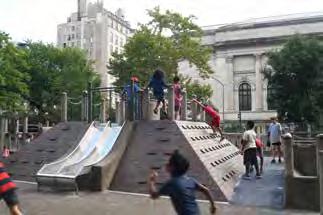
book series for kids and tweens


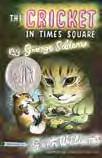
continued from page 37
Written by Dr. Dan Siegel, world-renowned neuropsychiatrist and co-author of “The
Child,” the “NowMaps” book

“The Cricket in Times Square” by George Selden
The story: Chester Cricket accidentally gets transplanted to Times Square (timessquarenyc.org), where he learns to chirp human songs, drawing crowds to the Bellini family’s newsstand.
Where to go: Visit the real Times Square, where you can still find a few newsstands selling magazines, candy and trinkets.
“Knuffle Bunny: A Cautionary Tale” by Mo Willems
The story: Trixie’s favorite stuffie, Knuffle Bunny, gets left behind on a trip to the laundromat.
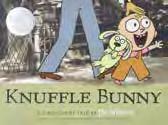
Where to go: Take a ride to Brooklyn, where Park Slope (nycgo.com), with its beautiful brownstones, is Knuffle Bunny’s native habitat. There’s even a statue of Knuffle Bunny at Park Slope Library. ■
JiaYing Grygiel is a mama of two boys as well as a freelance photographer and writer. She blogs at photoj.net.
 Cental Park Playground
Cental Park Playground
OUT + ABOUT
The authors draw on research, clinical experiences, and their 30-year collaboration to offer insights into parenting practices to help children thrive, strive, and survive. Tenacity Available from all booksellers today. TenacityInChildren.com 0821_dr_robert_brooks_1-4.indd 1 7/12/21 10:20 AM
social-emotional
Whole-Brain
series takes kids and tweens on an adventure as they explore their thoughts, feelings and sensory experiences. Readers will learn to create an internal snapshot of their present-moment experiences, enabling them to navigate everyday challenges and face big emotions, such as disappointment, impatience, worry, sadness and anger, with kindness. Available for purchase at pesi.com 1022_siegel_1-4.indd 1 9/14/22 3:15 PM 38 / PARENTMAP.COM
This book explains how to make it work.
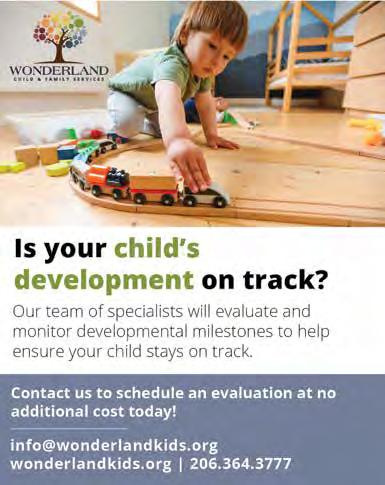
— The New York Times

If you feel that your relationship is unfair, 80/80 could save it.

— The Times (London)
An accessible guide for couples seeking greater love, connection, and intimacy in our modern world.
This New York Times Editors’ Choice book gives couples the insights, practices, and tools to navigate the challenges of modern marriage.
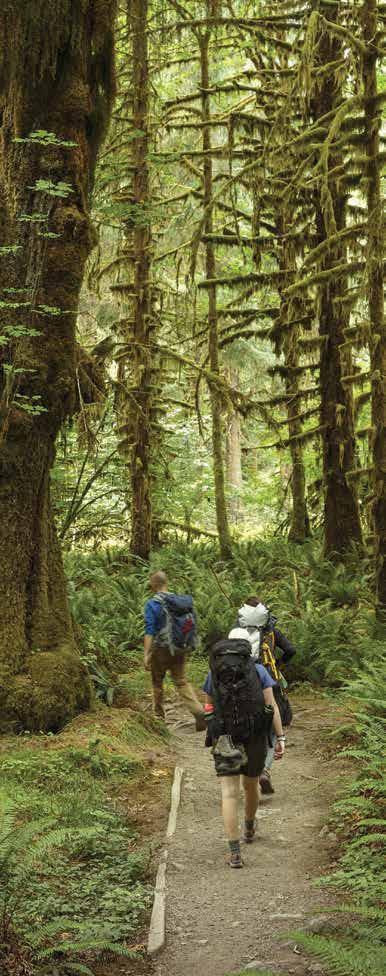


OUTDOORS
8080Marriage.com
0922_klemp_1-4.indd 32 8/12/22 1:11 PM Visit wdfw.wa.gov/ life-outdoors for more information LFE
PARENTMAP / OCTOBER 2022 / 39
ABILIT
Never pay more than 15K, or 15% of your adjusted gross income, whichever is less.
Families making up to $350K qualify.
Find out if you qualify at: samisfoundation.org/eligibility-estimator or call the Admission Office at the Seattle-area Jewish day school of your choice.

This incredible opportunity provided by Samis Foundation

Get an exceptional, private, Jewish day school education for less than you ever imagined.
AFFORD
Y DAY SCHOOL INITIATIVE




